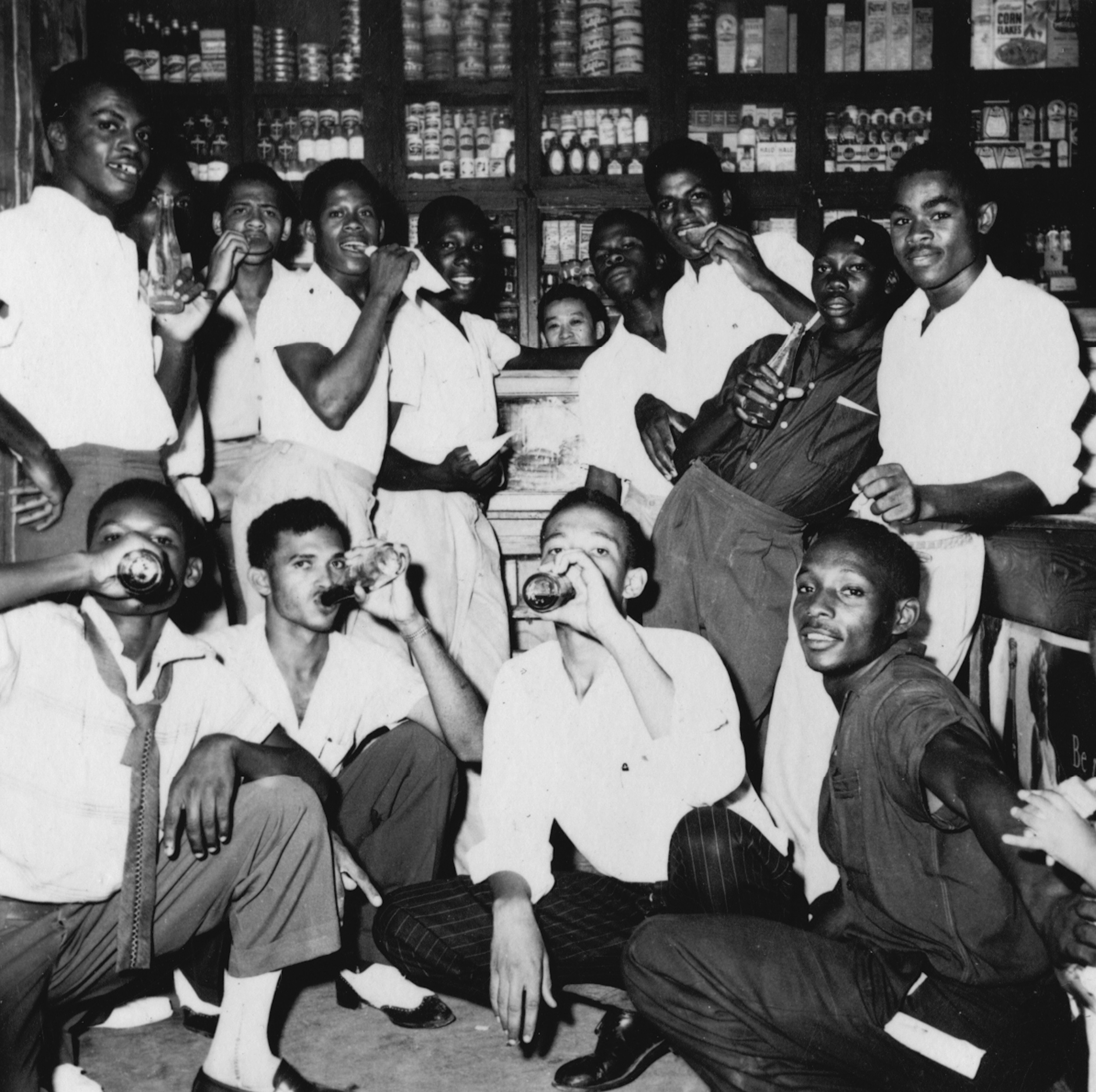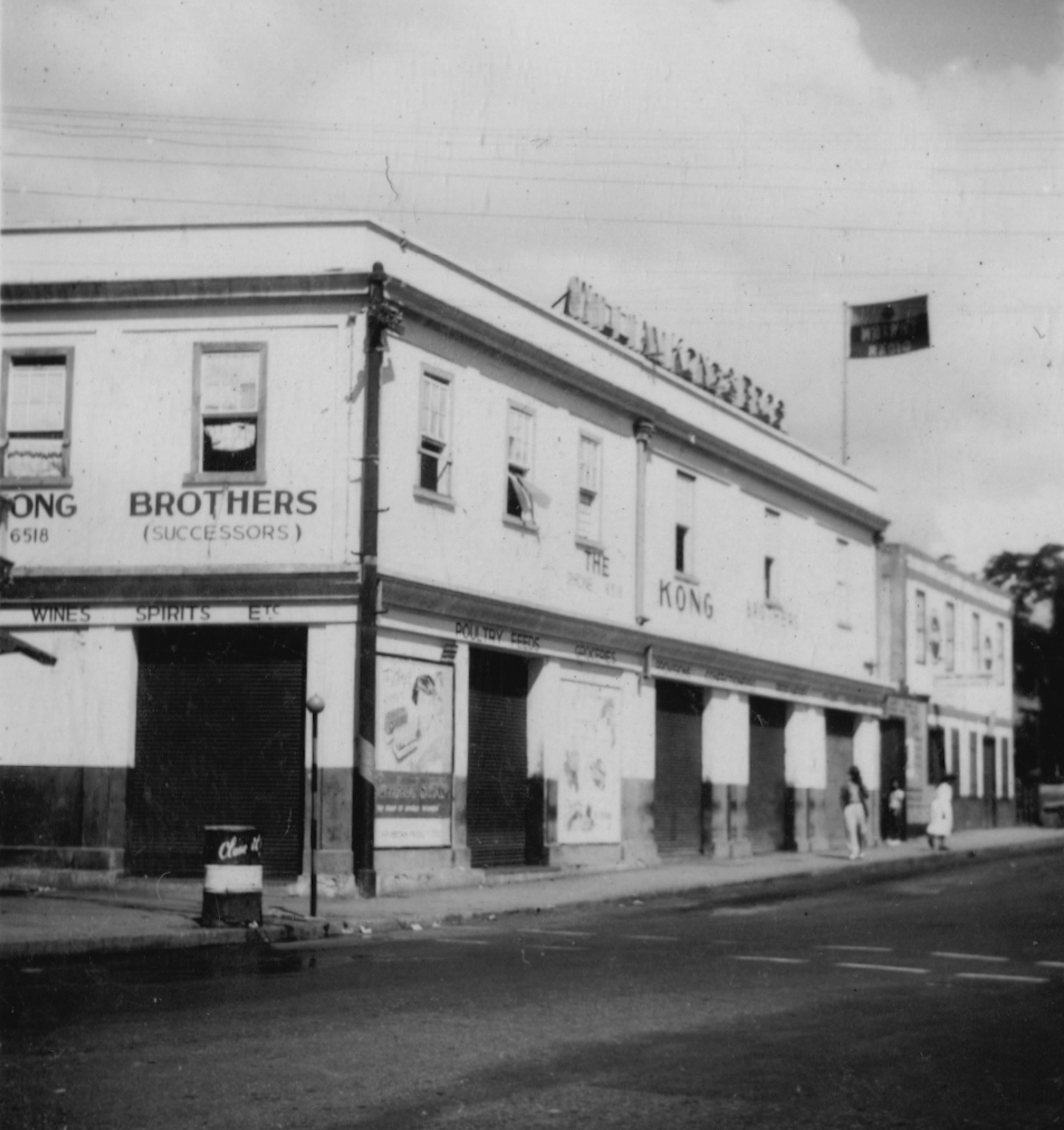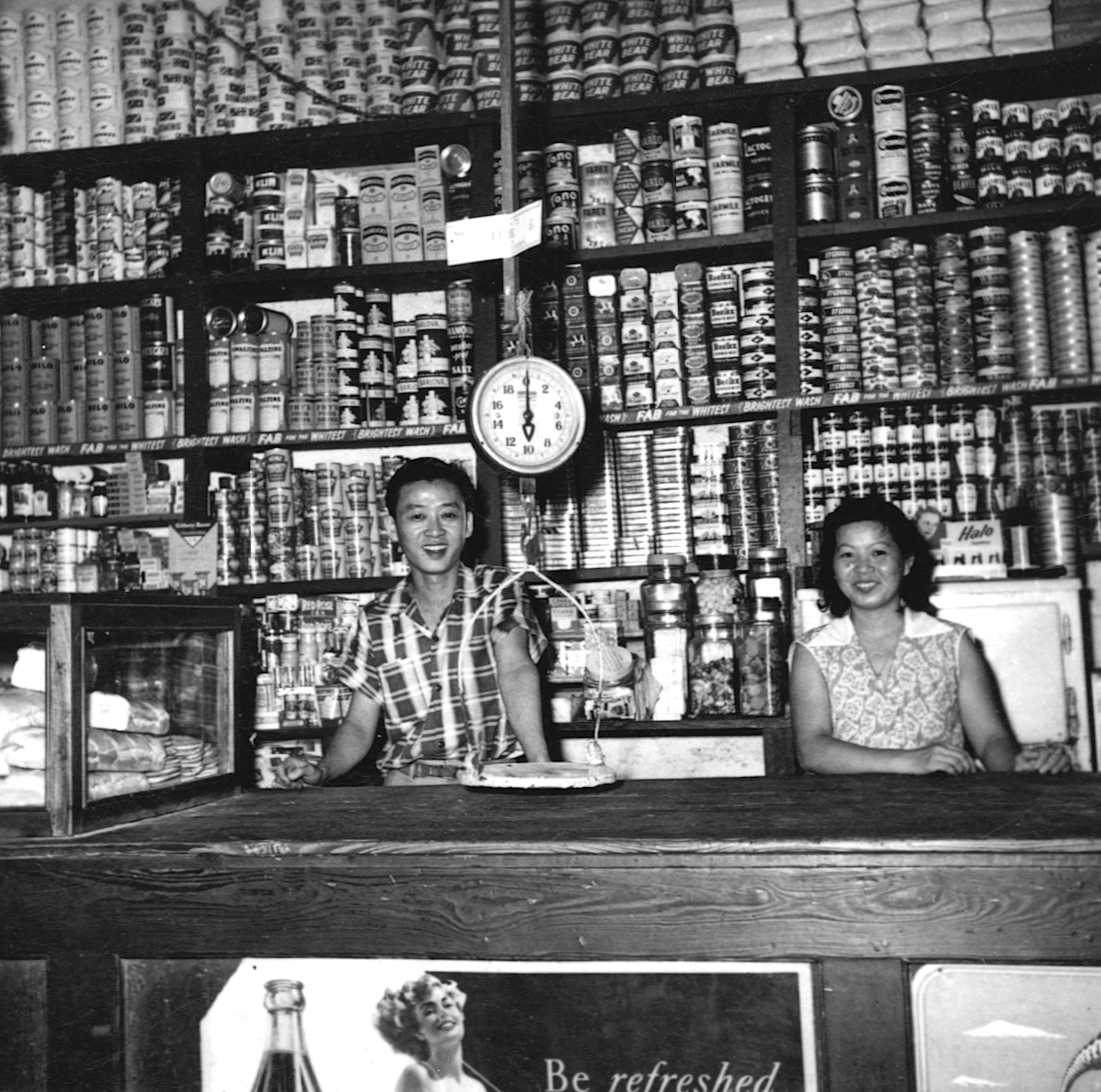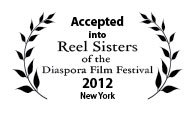Images from The Chiney Shop - Photos courtesy: © Estate of Keith I. Kong. Unauthorized use or reproduction of these images are strictly prohibited.
In Jamaica, from the 1930s to the early 1970s, the ubiquitous Chinese-owned groceries were located on many busy street corners in downtown Kingston to remote towns in every parish.
This documentary explores the complex relationship and social interaction between the Chinese shopkeepers and their Jamaican customers.
Although the Chinese were an insular group, The Chiney Shop explores the myriad ways, in which this ethnic minority contributed to Jamaican society. Drawing from interviews by members of the Jamaican-Chinese community and prominent Jamaicans from the diaspora and using archival footage and photos, the film attempts to illustrate the deeply-rooted connection between Chinese shopkeepers and Jamaicans not usually portrayed in mainstream media.
Featuring:
Ray Chen - Jamaican photographer
Alvin Curling - Jamaican- Canadian politician and diplomat
Joyce Gladwell - Jamaican-Canadian author
Norman Hew-Shue - Jamaican-Chinese community leader
Patrick Lee - Jamaican-Chinese publisher and historian
Olive Senior - Jamaican writer, poet, and historian
Carol Wong - Jamaican-Chinese community leader and author
NTSC, Colour, Approx. 26 mins.
© Ms. Chin Productions
“THE CHINEY SHOP ... demonstrates a warm and affectionate documentation of the important role played by the Chinese and their shops in Jamaica. The video is really the first of its kind that intermingles little-known black and white photos of Chinese families and their shops across Jamaica, along with moving pictures of life in Jamaica over 60 years ago which are available only in archives. Making those pictures available is in itself a valuable contribution to the study of the Chinese diaspora in the West Indies because they supply so much of the texture and the context of life in Jamaica in those early years.
The film is short but it manages to do so much and certainly is a pioneer work that paves the way for future explorations of this theme. Anyone who is doing serious research in this area will benefit from viewing this documentary.”
— Victor L. Chang, Retired Senior Lecturer, Department of Literatures in English, University of the West Indies at Mona, Jamaica
“More than simply a documentary of the rise of the Chinese shopkeeping class in early 20th century Jamaica, THE CHINEY SHOP provides an intriguing glimpse into the lives of the shopkeepers and their families behind the counter and makes a strong argument for understanding the Chinese shopkeepers as important pioneers in the development of the island. Perhaps even more important, however, is the film’s captivating ability to reveal the complicated layers of affection and acrimony that existed between Chinese shopkeepers and Jamaican natives as they negotiated their relationships ‘at the counter’. In so doing, THE CHINEY SHOP suggests that the daily socio-cultural transactions that occurred in ‘Chiney shop space’ were as, or even more important, than the economic transactions that were the basis of shop life and identifies the Chiney shop as having played a vital role in the creation of vibrant creolized Jamaican identities.”
— Anne-Marie Lee-Loy, Undergraduate Program Director, English Dept., Ryerson University and author of Searching for Mr.Chin: Constructions of Nation and the Chinese in West Indian Literature
“... An intimate documentary on the role of the small Chinese grocery in the Jamaican countryside. The absorbing half hour features rare, personal black and white photographs of shops amidst the lush Jamaican landscape combined with insightful stories from the families and customers of the shopkeepers between 1930-74. There are nuanced layers of complexity here. For me the highlight is the amazing Joyce Gladwell with her insights about ‘big fleas’ and ‘small fleas’ in the system of British colonialism and slavery. (We can see where her son Malcolm got his smarts.) Clearly interactions of different Chinese families in different communities varied. Of course many were business people who responded to shifts in local needs and realities—extending credit being foundational. Among the closest relations the Chinese merchant couples treated their stores as more than means of making a living (intensified by the Exclusion Laws of Chinese laborers in the Americas) but also a means to sharing their limited resources with the needs of the communities they served, who had far less.
This is an excellent film to combine with readings and discussions for the classroom. And also evocative for any local community in which the racial economy left the gap between haves and former enslaved, leaving room for immigrant shopkeepers to find a niche.”
— John Kuo Wei Tchen, Founding director, A/P/A Institute; Department of Social and Cultural Analysis; and The Gallatin School of Individualized Study, New York University & Co-founder, Museum of Chinese in America, NY









